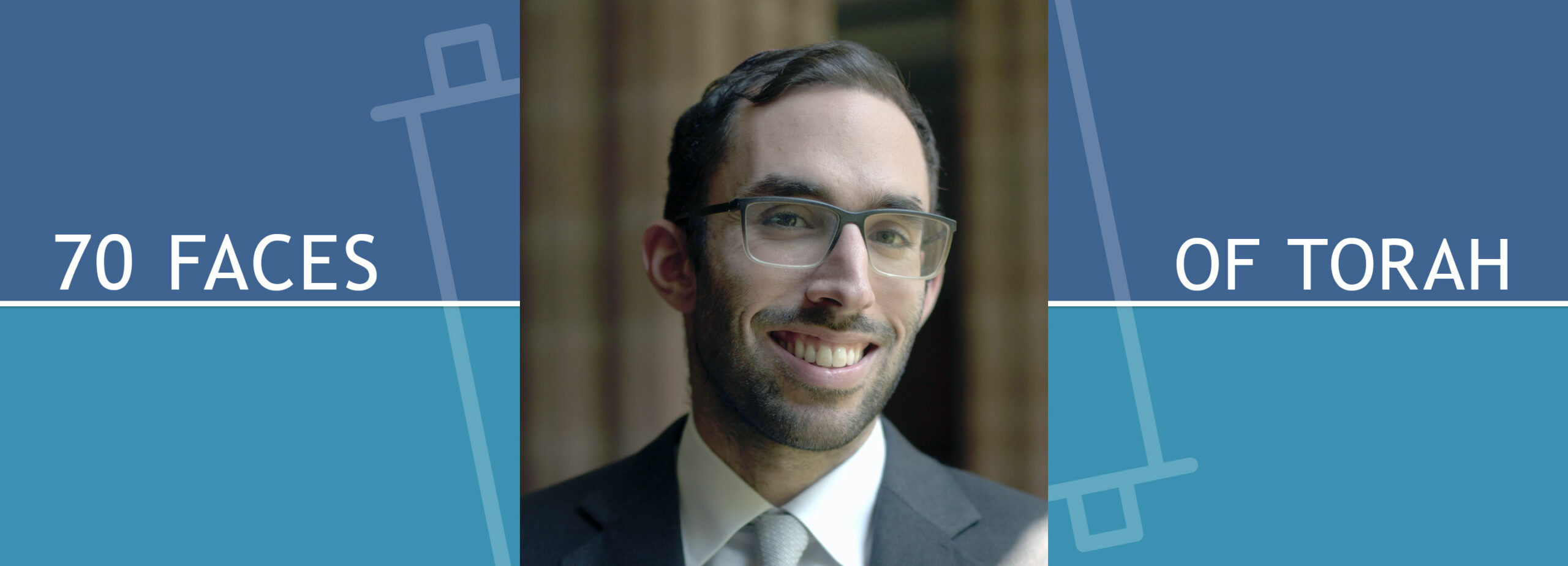Holidays Raising the Dead

Parashat Bamidbar (Numbers 1:1-4:20)
In every season, Jews around the world count days. In the summer, it’s the three weeks leading up to Tisha b’Av. The fall brings the aseret y’mei teshuvah, the ten days of repentance from Rosh Hashanah to Yom Kippur. The winter brings cold nights warmed by the light of the hanukkiah, the eight-pronged lamp used to count the eight days of Hanukkah. The spring brings its own count: the 49 days between Passover and Shavuot.
Counting days brings with it a sense of anticipation and excitement—the full blast of light at the end of Hanukkah, the reenactment of receiving the Torah on Shavuot. It builds awareness in our hearts and minds of each moment in time.
This Shabbat is both a culmination and a commencement of counting. On Friday night we conclude our count of the Omer with day 49, but before we commemorate the giving of the Torah on Shavuot, we begin a new book of the Torah, Numbers—with yet another count.
This week’s Torah reading, Parashat Bamidbar, opens with God telling Moses to count every Israelite male able to bear arms ages 20 and up.
מִבֶּן עֶשְׂרִים שָׁנָה וָמַעְלָה כָּל־יֹצֵא צָבָא בְּיִשְׂרָאֵל תִּפְקְדוּ אֹתָם לְצִבְאֹתָם אַתָּה וְאַהֲרֹן׃
You and Aaron shall record them by their groups, from the age of twenty years and up, all those in Israel who are able to bear arms. (Numbers 1:3)
As I write this d’var Torah, a tragedy is unfolding before the eyes of our country, and we as a nation are again being forced to count individuals, this time children, whose lives were tragically cut short by the shooting in Uvalde, Texas. Verses like the above are now searing to encounter.
Counting days brings anticipation; counting individuals brings trepidation.
Jewish tradition carries within it an air of skepticism when people are counted. In fact, there’s a long-standing Jewish custom to avoid counting people, for fear of inviting the evil eye or bringing awareness to absence.
After the events in Uvalde, we as a country are left counting in the worst of ways: bodies, minutes, ammunition. We are left wondering why. Why in a country that claims to be of, by, and for the people is there unbridled access to firearms that destroy the people? Why does the conversation always feel stalled, and why do we continue to live like this?
We will feel this absence for some time, an absence that, God willing, will lead us all to righteous action. It is now on us to pray and labor to fill this void of loss with aspirations and efforts for a better future.
Yet while our tradition is painfully aware of the absence that comes through counting, it also makes room for the human need to appreciate every single individual as being created in the image of God.
The idiom for counting found in the beginning of Parashat Bamidbar may be translated literally as “raise each head.”
Numbers 1:2 begins: Raise [count] the heads of all the congregation of the children of Israel…”
The Mei HaShiloach, a 19th century Hasidic Rabbi, picks up on the peculiarity of this phrase and writes the following:
“Raise” signifies importance. By means of counting the numbers of each tribe, every individual will know their special importance. This is as it is written (Hosea, 2:1), “And the number of the children of Israel will be as the sand of the sea, which cannot be measured or counted…”
Each and every one will be absolutely necessary. The greatness of God is seen in the entire community of Israel as a whole, and if just one member of that community is missing then the mixture will be deficient.
As the Mei HaShiloach writes above, counting—or, rather, raising up—each and every individual enables us to see, love, and appreciate the holy mixture of God’s creation. May the days ahead only bring us closer to this vision of interdependence and wholeness, and may the memories of all those whose lives were cut short in Uvalde be for a blessing.
Rabbi Max Edwards graduated from the Rabbinical School of Hebrew College in 2021. He is currently the Assistant Rabbi at Temple B’nai Abraham in Livingston, New Jersey.

